- Home
- Brian Falkner
The Real Thing Page 6
The Real Thing Read online
Page 6
One of the afternoon mixes showed some promise, and there was considerable excitement when Fizzer suggested a few alterations that might help bring it closer to the actual recipe itself. But it turned out to be a bit of a red herring as, no matter how they played around with the recipe, it just kept getting further and further away.
The first week went by, and spirits never flagged. Each new recipe was brewed with the wide-eyed enthusiasm that this might just be the one. Each variation that Fizzer asked for was seized upon with a religious fervour, as though it might prove to be the holy grail of cola making.
But the week ended up as a lot of activity for absolutely no gain.
The second week was much the same, and the third week. The main difference on the fourth week was that the buoyant mood of hope and expectation, that Fizzer was the solution to all their woes, was starting to disappear.
The mood wasn’t helped by the fact that the investigations into the disappearance of the three executives had gone precisely nowhere. There had been no clues left behind, no carelessly dropped book of matches with a phone number conveniently written inside. No cigarette butts of a foreign kind sold in certain shops by store owners with photographic memories for their customers.
Life wasn’t like the movies, it seemed, and the location of the executives was proving as elusive as the secret formula itself.
Fizzer was beside himself on the Wednesday of the fifth week, jumping around the room, knocking things over. ‘483,’ he kept shouting. ‘Number 483.’
483 was the batch number of the bottle he had just tried. Fizzer could hardly contain himself, but Tupai wondered why the others were all so unexcited by the discovery.
It turned out that 483 was in fact Coca-Cola. Ricardo had sent a bottle filled with the real thing along amidst a bunch of other batches, just to make sure that Fizzer would actually know the stuff if he fell over it.
As a test of Fizzer’s ability it was a success. But it got them no closer to finding the recipe, and when Fizzer finally realised the reason for all the glum faces, he was so depressed they took the rest of the afternoon off.
It was the last batch on the Friday of the sixth week that finally started unravelling the mystery.
Fizzer handed a capful of the dark liquid to Tupai to try. He did that occasionally, perhaps to keep Tupai involved in what was going on, although he said it was so that Tupai could educate his tastebuds.
‘It’s just a matter of perception and focus,’ he’d said on more than one occasion.
Tupai washed the liquid around in his mouth, then swallowed it.
‘What do you think?’ Fizzer asked.
‘Not quite,’ Tupai said, ‘but not too far away.’
‘I’ve got a feeling about this one,’ Fizzer said. ‘It tastes right. Well, not right, exactly, but it tastes as though all the ingredients are there, just not quite in the right amounts.’
He scribbled some notes. Batch 733 it was. Three was his lucky number, but that had nothing to do with his feelings about the brew.
The next day, Saturday, they didn’t have to work, and they’d been given some tickets to a football game, but Fizzer wanted to go in anyway. They’d have tried some of his suggestions on 733 by then.
733-23-A got Fizzer quite excited. He knew it wasn’t another of Ricardo’s tests because it had been mixed according to Fizzer’s explicit instructions.
Tupai called Ricardo on his mobile and they were quite surprised when not just Ricardo, but Reginald, Keelan, Terry, and Dolores turned up in the lounge, along with Anastasia Borkin. News of the possible discovery was too big to hold in.
Fizzer explained a little about 733-23-A. ‘But I’m not sure,’ he said.
A few of the Vice-Presidents tried it and there was general concurrence that it was on the right track. The mood, which had been growing steadily darker over the past few weeks, lifted like a blanket, and there were smiles and even a little laughter amongst the stressed out VPs.
Fizzer made some more notes for the next batch, then they left for the day. Tupai was quite keen to get to the Georgia Dome, where the home football team, the Atlanta Falcons, was playing that afternoon. They had only ever seen American Football on TV before, and Anastasia had generously bought them the tickets, so it was an opportunity not to be missed.
The limo that arrived was black, not the bright red one they were used to, which was the first warning sign they both completely missed.
The partition between the passenger compartment and the driver’s seat was up, which was also unusual as they had got to know all the limo drivers by first name over the last six weeks and generally had a good chat on the way to where they were going.
If they hadn’t been overexcited about batch 733-23-A, and maybe a little about the football game, they might have wondered why the fridge was already open, and why two long, cold glasses of water were waiting for them on the small table.
But they didn’t.
After all the sticky sweet batches of cola, a cold glass of water was a blessed relief for both of them.
Fizzer looked quite tired, Tupai thought, a few minutes into their drive. In fact he looked as if he were out cold, lying back against the seat with his eyes shut and the glass about to slip out of his hand.
It had been a long, tiring six weeks after all, Tupai thought, and stretched out to take the glass from his friend’s hand.
That’s when the first wave of dizziness hit him, and his own glass dropped to the floor, soaking the plush carpet of the vehicle.
He tried to suck in some deep breaths to fight off an approaching cloud of haziness and nausea, but it didn’t help, and by the time the limo had sped right past the queues waiting to get into the Georgia Dome, Tupai was stretched out on the seat of the car, snoring like a Captain Cooker.
HOLIDAY HOME FOR A TROLL
Clara Fogsworth had been underground before. She led quite an adventurous life and, although some of the more physical activities were becoming a little beyond her ageing bones, even as recently as a few years ago she had enjoyed some dare-devil adventures like waterskiing, jet boating and blackwater rafting. Her grandchildren thought it was really cool that she did these things, and called her Super Nana. Her children, two strong boys named Kurt and Stephan (she still called them boys even though they were in their forties) thought she was utterly mad, and their ever-so-pretty wives just smiled politely and rolled their eyes behind her back whenever she came to visit, and never came to visit her.
But no-one ever told her to give up the dangerous pursuits; in fact she suspected that at least one of the wives encouraged them.
Maybe it was due to the fact that they stood to inherit the millions of dollars of Coca-Cola shares that she and her late husband had amassed, ever since the 1940s, when it had seemed like part of the war effort to help build Coke factories overseas for the troops.
Oddly enough, if Clara’s husband hadn’t died of a tiny, but deadly, virus easily treated with modern medicine but often fatal back in the 1950s, she might never have taken up hang-gliding, or parachuting, or been in the space-flight simulator at the Kennedy Space Centre in Florida. ‘You never know how long you’ve got,’ she used to say to anyone who would listen. ‘So you might as well live it while you’ve got it.’
Now in her late seventies, Clara knew she probably wasn’t going to have it for all that much longer. A couple of decades at most, the last years of which she might be as helpless as a newborn baby.
None of which particularly concerned her, as she felt she had led a long, interesting and fruitful life, and would eventually go to her peace in the knowledge of a job well done. She just didn’t want to spend those last couple of decades living in a hole in the ground. And the way she was going, that looked like a distinct possibility.
The way she was going was down. The helicopter that had brought them to the island was perched at the top of the sinkhole, a long cable attached to its winch slowly lowering her the thirty or so metres to the floor of the c
ave on which Bingham, dear, kind, easily befuddled Bingham, and Ralph, surly, glowering Ralph, waited for her.
The harness slithered back up the shaft the second she unbuckled it, and she looked around at her new home.
The floor of the cave was dry and sandy, and a small stream ran through the centre of it, disappearing into a hole in the rock at the lower end.
There were six smaller caves off the main cave, and one of those led to another smaller chamber beyond, but it seemed that the only way out, was up.
Three of the caves had been set up as bedrooms, with stretcher beds, and drapes that could be hooked up to cover the entrances.
There was a small kerosene-powered refrigerator, and a seemingly endless supply of kerosene in one of the caves, which had been set up as a storeroom. It also contained cardboard boxes, stacked in rows, which appeared to contain food and other supplies.
All in all it would make a nice holiday home, she thought, for a troll!
Bingham wandered around the caves muttering, ‘Oh dear.’
Ralph just plonked himself down in one of the armchairs that had been conveniently arranged in the central cave and harrumphed a few times.
‘There’s no use calling for help,’ Candy had told them on the helicopter ride. ‘It’s a private island, patrolled by security guards. And, anyway, you’re a long way from nowhere.’
She’d also said, ‘Joe just wanted to kill you all, but I talked him into keeping you alive and came up with the idea of your little retirement home.’
Looking at the venom in her eyes when she looked at Bingham, though, Clara thought it had probably been the other way round.
The helicopter took off with a distant clacking sound and then the silence in the cave was absolute, except for the trickle of the stream.
‘Where in the world are we?’ she wondered aloud, not expecting an answer.
‘Papua New Guinea,’ Bingham replied. Considering that they had been locked below decks the entire time at sea, it was a testament to his surprisingly good sense of direction. ‘Or possibly closer to the northern coast of Australia. Maybe New Zealand, but I don’t think we went that far south.’
‘Might as well be Mars,’ harrumphed Ralph.
‘Did you give them the correct formula?’ Clara asked.
Bingham nodded. Ralph grunted, ‘Did we have any choice?’
She shook her head slowly. ‘No. No, I guess we didn’t.’
Clara wandered around, inspecting their rocky home, then idly opened a few of the cardboard boxes of stores to find out the contents. The first one she tried contained packets of soup in a variety of flavours. The second contained canned meat.
She opened a third carton and began, a little tiredly, to laugh. Even here, trapped underground for the rest of her life in a tiny rock-walled prison, she was able to see the humour in the delicious irony of Candy’s final revenge upon her ex-husband.
Ralph and Bingham crowded around her to see what was so amusing, but they didn’t find it funny at all. Not even slightly.
The carton was full of cans of Coca-Cola.
STORM RISING
If all the Coca-Cola ever made was poured into bottles and lined up in a row, it would stretch from the Earth to the Moon over a thousand times. That’s a lot of Coke.
Every second of every hour of every day, 8000 glasses of Coke gurgle down thirsty throats around the world. That’s also a lot of Coke.
Coca-Cola was the first soft drink to be drunk in space.
Even the modern image of Santa Claus was actually invented by The Coca-Cola Company as part of its advertising campaigns in the first half of the twentieth century.
Tupai and Fizzer had learned all these very interesting facts, and many more, during their guided tour of Coca-Cola World with the acting CEO of The Coca-Cola Company, Reginald Fairweather.
And all of them, Tupai thought, he would trade in a second for a book on how to pick handcuffs.
‘There are two things that worry me,’ Fizzer said slowly, twisting his hands around inside the cuffs to see if there was any way to slide them off. (There wasn’t.)
‘Only two things?’ said Tupai a little grimly.
‘The first thing is: what are they going to do with us? And the second thing is, how did they know?’
‘How did they know what?’
‘That we were on the right track.’
Tupai thought about that for a moment, but it was all a little confusing, so he waited for Fizzer to explain.
Fizzer did, after a while. ‘I think we know who, so that’s not a question, it’s the same people who kidnapped the three executives. Nothing else makes any sense. And I think we know why. We must have been getting too close to the correct recipe. But, at the moment, the only people who know the correct recipe, we assume, are the kidnappers, who will have wormed it out of the executives by now.’
‘Or tortured it out of them,’ Tupai said darkly, which wasn’t like him, but then he’d never been handcuffed and left in a dimly lit room in the middle of heaven-knows-where before.
‘But how did the kidnappers know that we were getting close to getting it right?’
‘There’s a spy inside The Coca-Cola Company’, Tupai said slowly.
‘Yes,’ said Fizzer, ‘and that’s what worries me the most, because, even within Coca-Cola, very few people know what is going on.’
‘I think I’m more worried about the first question,’ Tupai shifted his bulky frame around, trying to get comfortable, which was impossible on the hard concrete floor. ‘What are they going to do with us?’
‘I imagine they’ll have to kill us,’ Fizzer said, as if solving an algebra equation. ‘Maybe not straight away, but if they let us go, sooner or later I would come up with the recipe, and I have a feeling that they don’t want that to happen.’
‘So why not just kill us straight away?’
‘I don’t know.’ Fizzer ran his fingers through his longish hair. ‘I think the penalty for murder in Georgia is the electric chair. It often is in these southern states.’
‘Let me at the kidnappers and I’d save them some electricity,’ Tupai rumbled. ‘But if they’re not going to kill us straight away, then when?’
‘I don’t know that either. I suppose they could always lock us in a cellar with a few weeks’ supply of food and water, and when that was gone …’
He didn’t have to say the rest, Tupai thought, and it didn’t sound like a nice way to die. He looked around the dim room. The walls were made of large stones. It did look a bit like a cellar, he decided. And over in the corner were a few cardboard boxes.
A few weeks’ supply of food.
A light but strong-looking chain wound through his handcuffs, through Fizzer’s and around a stout wooden post in the centre of the room.
‘We need to confront the board,’ Fizzer said. ‘If I can look in their eyes and ask them if they’re involved, I think I’ll know if someone’s lying.’
Tupai held up his manacled hands. ‘That’s not going to be quite as easy as it sounds, or have you forgotten where we are?’
Fizzer shook his head. ‘We know where we want to be; we know where we are now. All we have to do is work out how to get from here to there. A journey of a thousand miles begins with a single step.’
‘Some days,’ Tupai said, ‘I wish you’d give up this airy-fairy crap and just come back down to reality.’
But there was a smile on his face as he said it.
The light in the room had grown measurably over the last twenty minutes or so, most of it coming from a high ventilation grille, only a few centimetres across. The light enabled them to get a better view of their surroundings. The floor was scattered here and there with mutterings of straw. At the far end of the room a short wooden flight of stairs led to a pair of heavy doors, not upright, as you would expect, and not horizontal, like trapdoors. They were on a steep slant, confirming the view that this was some kind of cellar.
Galloping horse hooves sounded distantl
y, the sound trickling down through the slots of the ventilation grille. The sound approached, then faded away again. A few moments later it repeated.
‘We’re on a farm somewhere,’ Tupai said.
‘A ranch, I think,’ Fizzer said. ‘A racing stable. I think that horse is galloping around a track.’
As if to prove him right, the sound approached again, then faded as before.
‘Do they do much racing in Atlanta?’ Tupai asked.
‘Maybe we’re not in Atlanta any more. I think we’re still in Georgia though.’
‘Your intuition again, right?’
‘Maybe.’ Fizzer pulled at his handcuffs absent-mindedly. ‘And I seem to remember that if you cross a state line, the crime becomes a federal offence. I think that’s worse somehow.’
‘OK, so what do we know? We’re handcuffed to a pillar, in a cellar …’
‘A tornado shelter,’ interrupted Fizzer suddenly, his eyes on the heavy wooden doors on the other side of the room. ‘That’s what this is, it’s a tornado shelter.’
‘OK, a tornado shelter, out in the countryside somewhere, a hundred miles from civilisation for all we know, but probably still in Georgia. How’s that going to help us when the food runs out?’
Fizzer didn’t know. He pulled his harmonica out of his pocket instead of answering and started playing the traditional song of the southern states: Dixie. The mood lifted immediately.
Tupai laughed and sang along for a few bars.
‘Oh, I wish I was in the land of cotton.
Old times there are not forgotten.
Look away, look away,
Look away Dixie Land.’
They ate cold beans out of a pull tag can that night and slept as well as they could by piling up some of the loose straw to make crude mattresses.
In the morning, with the effects of whatever had been in the water now fully worn off, and with the benefit of a little sleep, Fizzer finally had an idea.
Tupai had moved over to the heavy storm doors at the entrance to see if they looked as if they could be opened. He came back shaking his head.

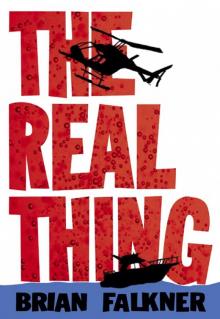 The Real Thing
The Real Thing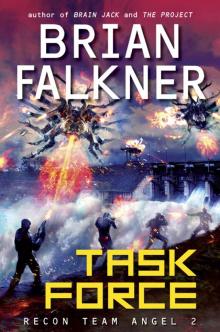 Task Force
Task Force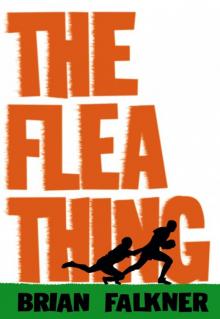 The Flea Thing
The Flea Thing The Project
The Project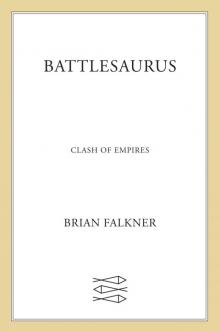 Clash of Empires
Clash of Empires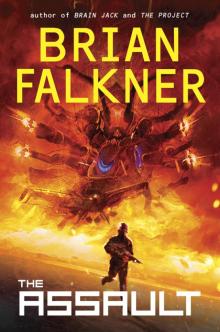 The Assault
The Assault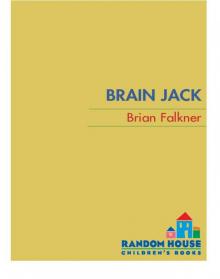 Brain Jack
Brain Jack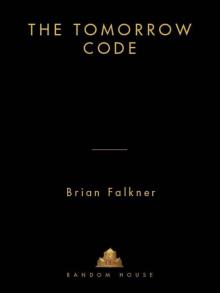 The Tomorrow Code
The Tomorrow Code Vengeance
Vengeance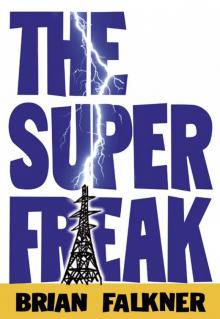 The Super Freak
The Super Freak Northwood
Northwood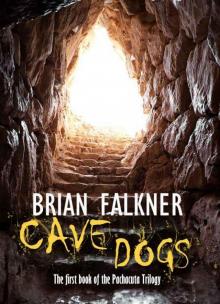 Cave Dogs (Pachacuta Book 1)
Cave Dogs (Pachacuta Book 1)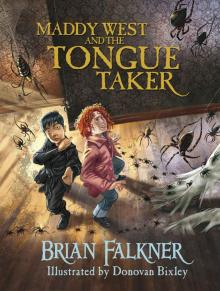 Maddy West and the Tongue Taker
Maddy West and the Tongue Taker